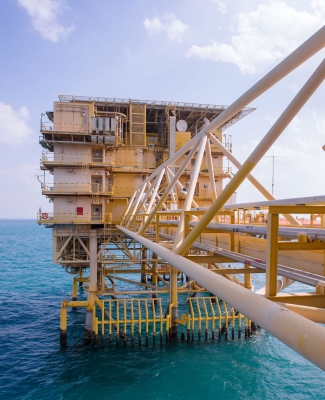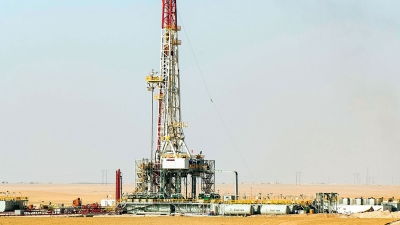
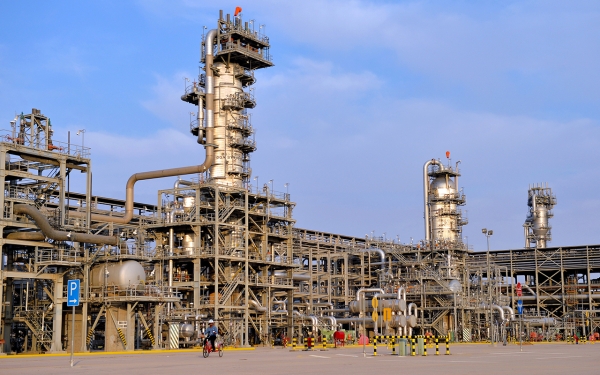
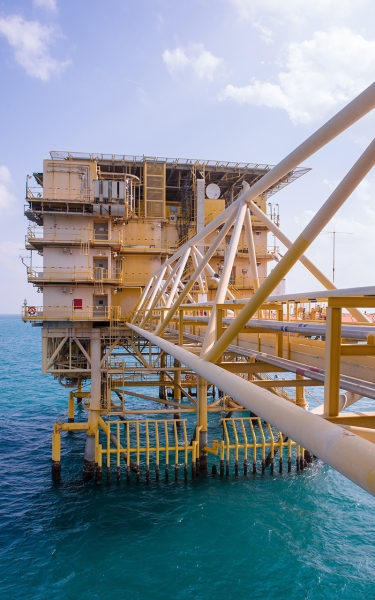
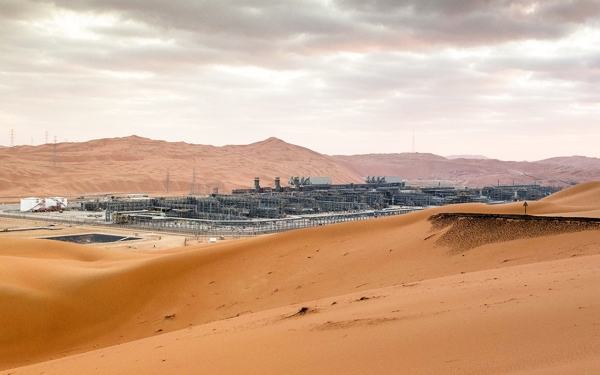
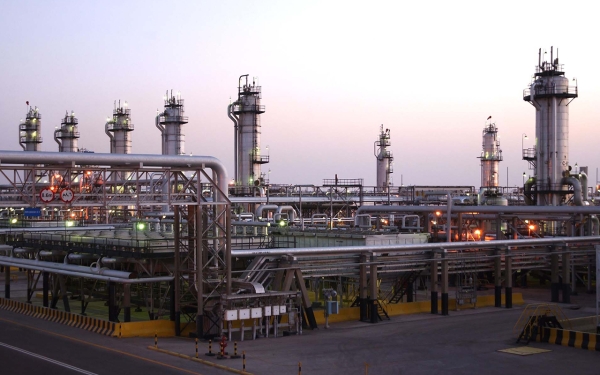
Oil fields in the Kingdom of Saudi Arabia are a collection of onshore and offshore oil fields and wells discovered and operated in the Kingdom of Saudi Arabia, totaling 142 fields. Most of the onshore oil fields are located within the Eastern Province's borders, along the coast of the Arabian Gulf and its maritime borders. All exploration, excavation, development, and production tasks are entrusted to the Saudi Arabian Oil Company (Saudi Aramco), the largest oil producer and exporter in the world.
The Kingdom's oil fields hold the second-highest crude oil reserves in the world, with a total reserve of about 338.4 billion barrels of oil equivalent, with a maximum production capacity of 12.0 million barrels per day. The Kingdom's oil types are: Arabian Heavy, Arabian Light, Arabian Very Light, and Medium crude oil, in addition to Arabian excellent.
Distribution of oil fields in the Kingdom
Oil fields and their facilities are situated at close distances from one another, most of which are located in the Eastern Province, such as the fields of Ghawar, Safaniya, Shaybah, Abqaiq, and Qatif. On the other hand, several fields are distributed across Riyadh Province, such as Khurais and al-Naeem, while one field is in the Northern Borders Province. Those fields are linked to processing, refining, and conversion facilities within industrial cities in the east, west, and north of the Kingdom through a complex network of pipelines.
The most prominent sources of oil in the Kingdom
Damman Well No. 7 is the first commercial oil well in the Kingdom. King Abdullah Bin Abdulaziz (the crown prince at the time) referred to it as al-Khair Well during his visits to Aramco facilities in 1999. As for al-Sharurah reservoir in the Northern Borders Province, which is part of Abraq al-Tulul oil field located in the southeast of the city of Arar, is the most recent exploration site in the Kingdom and was discovered in 2020.
Ghawar onshore field
The Kingdom encompasses the world's largest traditional oilfield, the Ghawar onshore field in al-Ahsa Governorate, east of the Kingdom. It alone accounts for about 6.25 percent of the total global oil production and more than 50 percent of the cumulative oil production in the Kingdom. Its territorial waters in the Arabian Gulf also include the world's largest offshore oil field, the Safaniya field. The latter holds reserves of 34.03 billion barrels of oil equivalent.
Oil is concentrated in the eastern and south-eastern regions of the Kingdom, as it is located within a wide strip containing about 60 percent of the world's oil reserves. This strip starts from northern Iraq and passes through the Arabian Gulf and its coasts, the Gulf of Oman, and the Arabian Sea coasts.
Oil exploration operations in the Kingdom
The first oil exploration operations in the Kingdom began in the early 1920s after the Founding King Abdulaziz Bin Abdulrahman Al Saud granted an oil exploration concession agreement to General Eastern Syndicate in May 1923. However, the company's failure to detect oil and its inability to pay its dues to the Saudi government in 1925 prompted King Abdulaziz to cancel the concession in 1926.
Oil exploration concession agreement
Oil discoveries in the Arabian Gulf, especially in Jabal Dukhan in Bahrain, seventy km from the eastern coast of the Kingdom, have fostered speculation about oil being hidden within its territories. This prompted King Abdulaziz Bin Abdulrahman Al Saud to sign an oil exploration concession agreement with the Standard Oil of California (Socal) in 1933. After that, the California Arabian Standard Oil Company (CASOC), an affiliate of Socal, was formed to implement all exploration affairs in the Kingdom.
In the 1930s, the exploration and drilling of wells in the Kingdom were spurred. In the late 1930s, the first oil shipment from the Kingdom sailed from Ras Tanura Port. Then, exploration operations expanded, and the number of fields increased in the early 1940s. Signs of economic growth and prosperity based on oil revenues emerged, during which the name of the company in charge of the oil business in Saudi lands was changed to The Arabian American Oil Company.
In the middle of the twentieth century, the company moved from its headquarters in New York to Dhahran City, and the Kingdom was producing more than one million barrels of crude oil per day. In 1988, the company's name changed to Saudi Arabian Oil Company, and its daily oil production grew until it recorded the highest historical production of crude oil per day of about 12.1 million barrels on April 2, 2020.
The development of some cities in the Eastern Province coincided with oil production growth
Urban cities, which were once villages, located near oil fields and wells, such as al-Khobar and Jubail City, grew and expanded. The city of Dhahran, which began as a residential complex for workers and employees of Aramco, saw the light of day. Besides Aramco's main offices, King Fahd University of Petroleum and Minerals was founded in 1963, and specialized in science and engineering. Its graduates are drawn to work in the oil industry.
Establishing industrial cities to develop oil and petrochemical industries
Industrial cities were also established to develop petroleum and petrochemical industries, the oldest of which is Jubail Industrial City in Jubail Governorate within the Eastern Province. Moreover, the most recent industrial city is Wa'ad al-Shamal Industrial City in the Northern Borders Province.
Saudi ports activity in shipping oil and its derivatives
Ports flourished, and others were founded on the coasts of the Arabian Gulf and the Red Sea for shipping oil and its derivatives and exporting them, such as Ras Tanura Port, through which the first shipment of Saudi oil was exported in 1939, in addition to King Fahd Industrial Port in Jubail, King Fahd Industrial Port in Yanbu, and Ras al-Khair Port.
Oil in Saudi literature
Oil, in addition to the social and economic transformations, is present in the arts of Saudi literature, such as poetry and novels. Sometimes the results of this oil boom and its associated circumstances are stated, while at other times, oil is mentioned explicitly. As the poet Prince Abdulrahman Bin Musaed said in 1998, within the activities of the National Festival of Heritage and Culture (Janadriyah):
They say, Bedouin and oil. I am grateful for our oil
We raced with time throughout our lives, and overcame the deprivation.
Related quizzes
